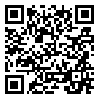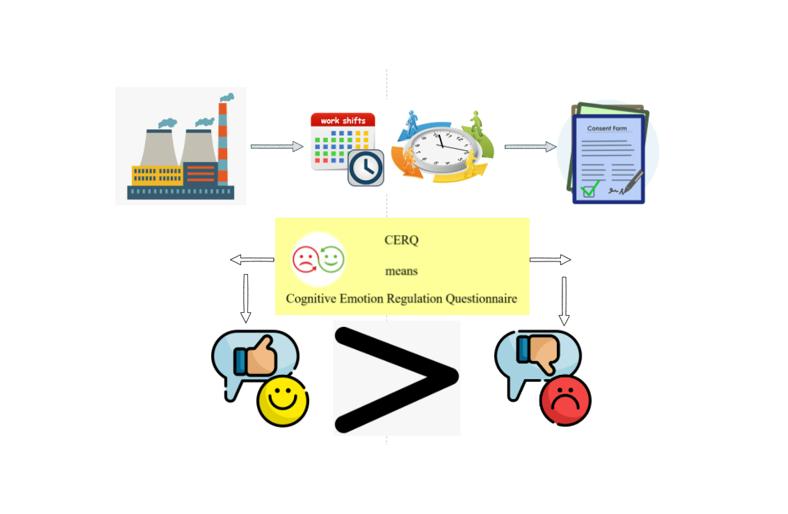Volume 12, Issue 4 (12-2022)
J Health Saf Work 2022, 12(4): 842-853 |
Back to browse issues page
Download citation:
BibTeX | RIS | EndNote | Medlars | ProCite | Reference Manager | RefWorks
Send citation to:



BibTeX | RIS | EndNote | Medlars | ProCite | Reference Manager | RefWorks
Send citation to:
Ghanbari Z, Zakerian S A, Choobineh A, Nami M, Gharagozlou F. Assessment of Cognitive Emotion Regulation Scale Scores among Control Room Operators. J Health Saf Work 2022; 12 (4) :842-853
URL: http://jhsw.tums.ac.ir/article-1-6774-en.html
URL: http://jhsw.tums.ac.ir/article-1-6774-en.html
Zahra Ghanbari1 
 , Seyed Abolfazl Zakerian *
, Seyed Abolfazl Zakerian * 
 2, Alireza Choobineh3
2, Alireza Choobineh3 
 , Mohammad Nami4
, Mohammad Nami4 
 , Faramarz Gharagozlou5
, Faramarz Gharagozlou5 


 , Seyed Abolfazl Zakerian *
, Seyed Abolfazl Zakerian * 
 2, Alireza Choobineh3
2, Alireza Choobineh3 
 , Mohammad Nami4
, Mohammad Nami4 
 , Faramarz Gharagozlou5
, Faramarz Gharagozlou5 

1- Department of Occupational Health Engineering, School of Public Health, Tehran University of Medical Sciences, Tehran, Iran
2- Department of Occupational Health Engineering, School of Public Health, Tehran University of Medical Sciences, Tehran, Iran ,zakerian@tums.ac.ir
3- Research Center for Health Sciences, Institute of Health, Shiraz University of Medical Sciences, Shiraz, Iran
4- Neuroscience Laboratory, NSL (Brain, Cognition and Behavior), Department of Neuroscience, School of Advanced Medical Sciences and Technologies, Shiraz University of Medical Sciences, Shiraz, Iran. AND DANA Brain Health Institute, Iranian Neuroscience Society-Fars Chapter, Shiraz, Iran. AND Neuroscience Center, Instituto de Investigaciones Científicas y Servicios de Alta Tecnología (INDICASAT AIP), City of Knowledge, Panama City, Panama. AND Brain Mapping Foundation and Society for Brain Mapping and Therapeutics, Los Angeles, CA, USA. AND Brain, Cognition and Behavior Unit, Department of Neuroscience, School of Advanced Medical Sciences and Technologies, Shiraz University of Medical Sciences, Shiraz, Iran.
5- Department of Occupational Health and Safety Engineering, School of Public Health, Kermanshah University of Medical Sciences, Kermanshah, Iran
2- Department of Occupational Health Engineering, School of Public Health, Tehran University of Medical Sciences, Tehran, Iran ,
3- Research Center for Health Sciences, Institute of Health, Shiraz University of Medical Sciences, Shiraz, Iran
4- Neuroscience Laboratory, NSL (Brain, Cognition and Behavior), Department of Neuroscience, School of Advanced Medical Sciences and Technologies, Shiraz University of Medical Sciences, Shiraz, Iran. AND DANA Brain Health Institute, Iranian Neuroscience Society-Fars Chapter, Shiraz, Iran. AND Neuroscience Center, Instituto de Investigaciones Científicas y Servicios de Alta Tecnología (INDICASAT AIP), City of Knowledge, Panama City, Panama. AND Brain Mapping Foundation and Society for Brain Mapping and Therapeutics, Los Angeles, CA, USA. AND Brain, Cognition and Behavior Unit, Department of Neuroscience, School of Advanced Medical Sciences and Technologies, Shiraz University of Medical Sciences, Shiraz, Iran.
5- Department of Occupational Health and Safety Engineering, School of Public Health, Kermanshah University of Medical Sciences, Kermanshah, Iran
Abstract: (1181 Views)
Introduction: Cognitive emotion regulation (CER) strategies define as cognition-based responses according to emotion-eliciting experiences that can change the type and severity of individuals’ reactions and behaviors. This modification may positively or negatively affect cognitive performance and therefore, it is a defining issue in the workplace. Notably, industries such as combined cycle power plants need to hire staff with a high cognitive ability to perform their duties in a highly efficient way. Since CER is of great importance for overall health and cognitive performance, we aimed to evaluate the state of CER among control room operators (CROs) in the Fars combined cycle power plant.
Material and Methods: The CER questionnaire (CERQ) measures nine cognitive coping strategies (i.e., self-blame, other-blame, rumination, catastrophizing, positive refocusing, planning, positive reappraisal, putting into perspective, and acceptance) that are followed when an individual confronts negative events. The CERQ (short version) was administered to 57 male CROs at the Fars combined cycle power plant. The questionnaire also collected demographic data. Statistical analyses were performed using SPSS Version 25.0. For the normality test, Shapiro-Wilk was the method of choice.
Results: Results of the CERQ scoring showed that the median with interquartile range (IQR) in appropriate and inappropriate categories were 3.50 (3.30-4.00) and 2.62 (2.25-3.06), respectively. Of note, age (39.07 ±6.19) and work experience (14.49±6.26) were not significantly correlated with the results of CERQ.
Conclusion: Taken together, adaptive cognitive strategies (acceptance, positive refocusing, planning, positive reappraisal, and putting into perspective) were reported to be used more often than less adaptive strategies. In general, staff strategies were appropriate while facing a negative event. Although assessing CER in high-demand workplaces is necessary, factors such as managerial styles, job engagement, job satisfaction, and larger sample size should be further studied.
Material and Methods: The CER questionnaire (CERQ) measures nine cognitive coping strategies (i.e., self-blame, other-blame, rumination, catastrophizing, positive refocusing, planning, positive reappraisal, putting into perspective, and acceptance) that are followed when an individual confronts negative events. The CERQ (short version) was administered to 57 male CROs at the Fars combined cycle power plant. The questionnaire also collected demographic data. Statistical analyses were performed using SPSS Version 25.0. For the normality test, Shapiro-Wilk was the method of choice.
Results: Results of the CERQ scoring showed that the median with interquartile range (IQR) in appropriate and inappropriate categories were 3.50 (3.30-4.00) and 2.62 (2.25-3.06), respectively. Of note, age (39.07 ±6.19) and work experience (14.49±6.26) were not significantly correlated with the results of CERQ.
Conclusion: Taken together, adaptive cognitive strategies (acceptance, positive refocusing, planning, positive reappraisal, and putting into perspective) were reported to be used more often than less adaptive strategies. In general, staff strategies were appropriate while facing a negative event. Although assessing CER in high-demand workplaces is necessary, factors such as managerial styles, job engagement, job satisfaction, and larger sample size should be further studied.
Keywords: Cognitive Emotion Regulation (CERQ), Cognitive Performance, Emotion, Combined cycle power plant
Type of Study: Research |
Received: 2022/12/26 | Accepted: 2022/12/31 | Published: 2022/12/31
Received: 2022/12/26 | Accepted: 2022/12/31 | Published: 2022/12/31
Send email to the article author
| Rights and permissions | |
 |
This work is licensed under a Creative Commons Attribution-NonCommercial 4.0 International License. |





